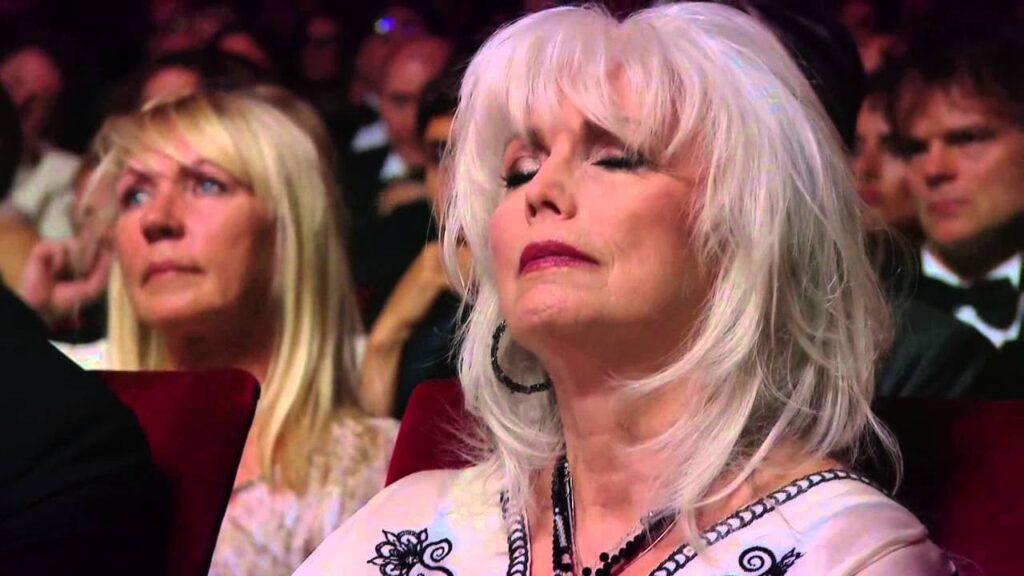
The Unspoken Epitaph of Lost Dreams in the Heart of Dixie
A haunting ballad that traces the poignant, unheralded life and death of a young woman trapped by the gravity of her small-town world.
There are certain songs that, upon hearing the first few melancholic chords, immediately transport you to a place of quiet reflection, a sense of shared human experience etched with both beauty and deep, familiar sorrow. Emmylou Harris’s “Red Dirt Girl” is one such masterpiece. Released in September 2000 as the title track of her nineteenth studio album, the song, and the album it anchors, represented a pivotal moment for the legendary artist. Known for decades as a brilliant interpreter of other songwriters’ work, Harris found her own voice as a composer on Red Dirt Girl, writing or co-writing eleven of the twelve tracks. This personal vulnerability resonated profoundly with listeners and critics alike.
The Red Dirt Girl album quickly proved its significance, peaking at #3 on the Billboard Country Albums chart and #54 on the Billboard 200—a testament to its broad appeal across genres. Its critical success was sealed when it won the Grammy Award for Best Contemporary Folk Album in 2001. More than the numbers, however, the record marked a deep emotional turn, a mature artist facing the dramatic losses and big questions of middle age, turning them into resonant art.
The story behind the title track is as simple as it is heart-wrenching. Emmylou Harris has spoken about the song being inspired by her drive past Meridian, Mississippi, which sparked the opening imagery of a small-town life. But the spirit of the story—the crushing realization of dreams deferred and lives forgotten—was powerfully fueled by her viewing of the film Boys Don’t Cry. The movie’s underlying theme of young people trapped with limited options, destined to be ignored by the “News of the World,” crystallized the song’s meaning. It’s a fictional narrative, yes, but one that draws from the deep well of human experience familiar to anyone who’s ever known someone who didn’t quite make it out, or even one’s own alternate life.
The song is a folk lament, telling the tale of Lillian, a girl from an unnamed Alabama town whose simple dream of escape—to swing her “hammer down” and leave for the “great big world”—never materializes. We watch her skid from hope to tragedy: married young, the mother of five, eventually succumbing at the age of 27 to a fate ambiguously laid at the feet of “the whiskey,” “the pills,” or “the dream she was trying to kill.” It’s a stark portrait of rural poverty and systemic neglect, where lives are lived and lost without headlines or fanfare.
For older listeners, the song’s emotional resonance is palpable. It speaks to that lingering, nostalgic ache for friends and family whose lives took a different, darker path. Harris’s gentle, ethereal voice, underpinned by Malcolm Burn’s atmospheric, low-key production, turns Lillian’s story into a universal elegy. It reminds us of the fragility of fate, the sheer luck that allows some to escape the confines of their beginnings while others remain rooted to the “red dirt.” There’s an unspoken acknowledgment that the singer—the Emmylou Harris who did leave the small town and made a life of great beauty—could easily have been the one who stayed, the one whose dreams crumbled into dust. It is a song that gives voice to the voiceless, a beautiful, devastating testament to the quiet tragedies that unfold every day, far from the bright lights and the news cycle. It is the sound of an artist at her absolute peak, having stepped from being an incomparable interpreter to a powerful, compassionate chronicler of the human heart.